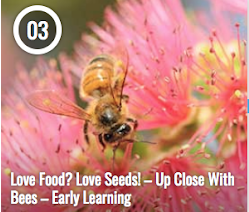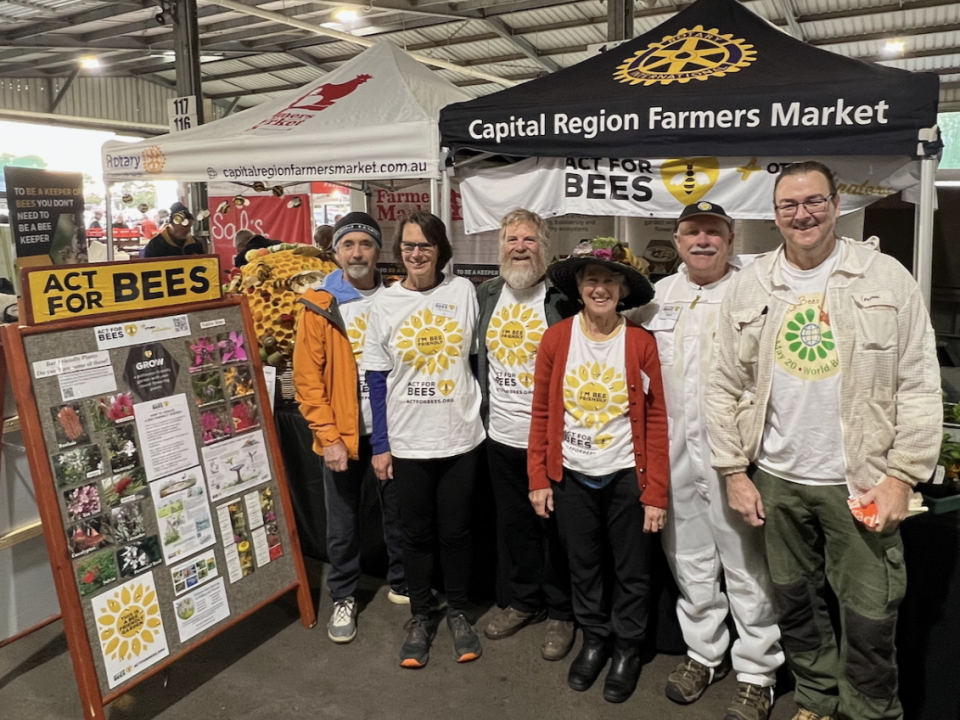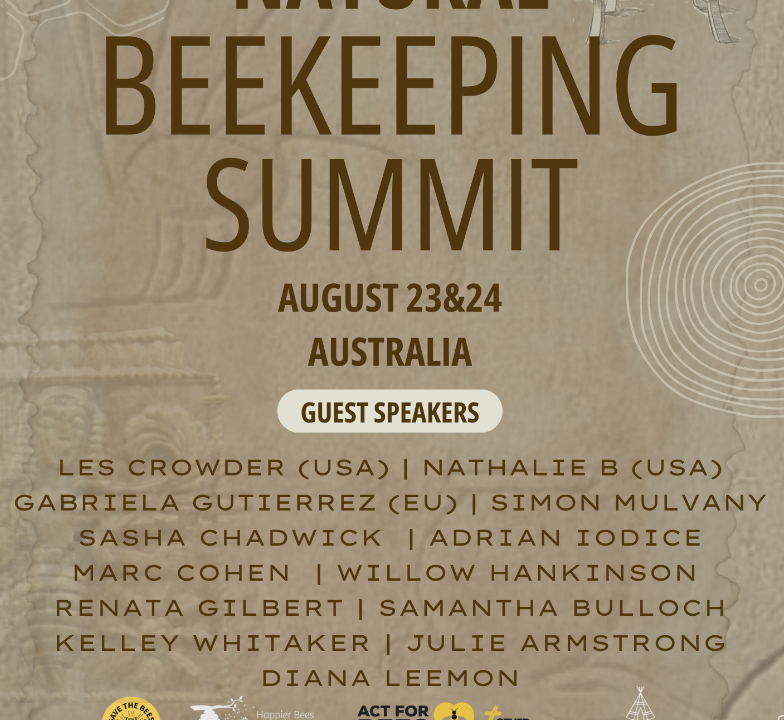What are the bees up to in winter?
July 20, 2018Spring Bees Buzz
October 29, 2018Since World Bee Day on Sunday May 20
We’ve been very involved in all sorts of activities after this wonderful celebration for Australian native and honey bees. Thanks to the Slovenian Embassy we’ve had meetings with a range of ACT (Australian Capital Territory) Government Ministers seeking their support for ongoing celebrations of World Bee Day and seeking support for our recommendations in Nature in Our City submission (Pages 1-11) about the ACT Government taking a lead on action to protect bees in Australia.
We’re working towards a ‘Bee Friendly Canberra’ where ‘Bee’ Friendly City meaning ‘B’ for Bees, Butterflies, Birds & Biodiversity. When we take care of pollinators we are caring for the whole ecosystem. Read more here (Pages 119-203) and see how we’ve added to the ACT Government Street planting list by adding flowering times, nectar/pollen/ seed resources and which animals use the plants for food

New Early Childhood Curriculum
Our new early learning curriculum ‘Love Food? Love Seeds!’ (for preschoolers 0-5 years) was launched in early July. With a focus on sensory and play-based learning, this unit consists of 6 stand-alone activities to help children understand where their food comes from and get them thinking about how plants grow from seeds. The activity Growing Seeds takes children outside to look for seeds, act out the way a seed grows into a plant, and plant seeds in tubes to monitor different stages of growth. These activities are highly adaptable to any seeds you have on hand. The activity Comparing Seeds inspires children to explore the size, colour, texture and shape of seeds that we eat. Younger children make maracas using dried seeds and milk/juice bottle lids. Older children can make maracas and other craft projects including mosaics.
Your children will be fascinated to know that many fruit, nuts, vegetables and seeds depend on bees and other insects for pollination.
You can link these activities to calendar events such as:
- Australian Pollinator Week (11-18 November 2018)
- Wild Pollinator Count in November and April each year
- World Bee Day on 20 May 2019 – see Facebook for Australian news, events and activities
See all of our ‘Love Food? Love Bees!’ curriculum resources from preschool to year 9/10 with a focus on bees, food security and sustainable agriculture. Thanks Cool Australia for the collaboration!

ANU for Bees
ACT for Bees is very happy to have a growing interest from students at ANU, (Australian National University) who are creating a new group ‘ANU for Bees’ to promote a ‘Bee Friendly’ campus which supports the health of pollinators by planting a wide range of plants for forage, reducing pesticide usage, and raising general awareness about biodiversity and pollinators in the ANU community. They’re going to have a training session with Anna Rose who is involved in Farmers for Climate Action . If you’re at ANU and interested in joining the group, please contact anuforbees@gmail.com. Planning for more pollinator plants has already begun with the Canberra Environment Centre meeting with some students representing ANU for Bees last week.
The Bee Friendly Gardens talks have been popular with many community groups. Please contact us if you’d like us to help you prepare for Spring planting with good ideas for pollinator gardens. This is a good list of ‘Bee Friendly ‘plants for Canberra climate. ACT for Bees website has a great range of information about Australian native bees, Gardening for Bees and Natural Beekeeping.
Meg has recommended A Guide to Native bees of Australia just published, featuring 2000 Australian native bees!
Great news about a new initiative How a humble Australian bee could help the world’s plastic problem “There’s a buzz among researchers across the Tasman as they recruit native Australian bees to fight the war on waste by helping create a new bioplastic.”
‘Learning from the Bees’
We’re off to ‘Learning from the Bees’ conference in the Netherlands 31st August – September 2nd. Adrian Iodice and Robin Burbridge of Beekeeping Naturally in Bega will be presenting at the forum ‘Children as Bee Guardians for the Future’ as well as myself.
“This event ‘Learning from the Bees’ will be the first of its kind – bringing together natural beekeepers, scientists, nature conservationists, artists and bee-lovers from all over the world. Together, we will shift our gaze from contemporary apicultural practices towards a Culture of the Bee, exploring together what that may look like, and how best to listen to the messages these pollinators are giving us about ourselves and about our relationship with the land (or with nature). In this way we hope to weave a strong international network of initiatives, which share the common objective of returning health and resilience to the honeybee worldwide.”
Thomas Seeley whose book ‘Honeybee Democracy’ has shown how Honeybees make decisions collectively–and democratically, Jonathan Powell of the Natural Beekeeping Trust and Professor Johannes Wirz from the Research Laboratory at the Goetheanum and who appeared in the film ‘Queen of the Sun: What are the bees telling us?’ are setting the scene for the conference.
We will endeavour to keep you posted on ACT for Bees Facebook page and Instagram as best we can!

Upcoming Events
Monday 10th September 8.30am – 10 am Stand Against Extinction We need your help to represent 2000 threatened species. Will you help please and come dressed as your favourite threatened Australian bee or bird?
Sunday 4th November 11am-3pm Orana Steiner School Spring Fair ‘Bee Friendly’ Plant Sale (pesticide free)
Sunday 11 November Canberra City Farm Open Day
11th -18th November Australian Pollinator Week and join in the Spring Wild Pollinator Count and other activities.
Enjoy the beauty of emerging Spring with so many flowers and bees.
Best wishes
Julie, Matt, Diane, Warren, Meg, Rob, Gerry, Desiree, Julia, Danielle, Simon, Steph, Nick, Josh, Cassidy, Peter, Rhonda, Robert and Melissa
The ACT for Bees team!



